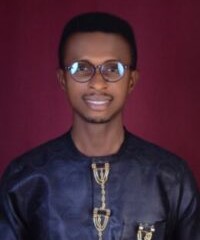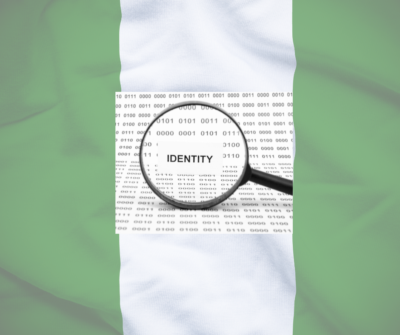If an “Emeka” who is born in Lagos, grew up in Lagos and had never lived in the South-East throughout his life claims the Igbo identity for instance, it’s not necessarily out of love, but out of necessity. The system has made it so because, it’s only by claiming that (ethnic) identity can he get a ministerial slot in the Federal Executive Council (FEC) for instance. But the Nigerian (national) identity does not yet offer concrete benefit and pride to him alongside other Nigerian citizens.
The opening paragraph captures the disposition of many Nigerians about national identity and pride. It would go on to set the tone for this essay. The essay explores the concept of national identity and pride in a multi-faceted society recently facing protracted armed struggle and key developmental issues. It explores the extent to which historical antecedents and political developments have shaped notions of national pride and identity amongst Nigerians. The essay argues that, despite the odds, weaving a narrative to inspire a national pride and identity in the face of a seemingly topsy-turvy present-day Nigeria is possible.
By the way, what really is National Identity and Pride?
It refers to the sense of belonging one has to a nation – say Nigeria, or the sense of solidarity one feels with a group about a nation regardless of one’s actual background or citizenship status. The expression of one’s national identity seen in a positive light is patriotism which is characterized by national pride and positive emotion of love for one’s country.[1] Elements of National Identity include the national anthem, working for the success of the nation, respecting national symbols and so on. A closer look at these elements gives a reflection of how Nigerian citizens see the concept of National Identity and pride.
Take the national anthem for instance; how many people still feel goose bumps whenever the trumpets herald the “Arise, O compatriots…?” How many still stand at attention while caressing their breasts or foreheads to the rhythmic chords the melody and harmony strike whenever the anthem hits the airwaves? How many citizens still remember the first and second stanzas of our national anthem? Not many souls anymore. How many citizens are ready to shed their blood defending the integrity of the country? How many of our politicians really work for the success of the nation? Do we hold and see our national symbols like the national flag and coat of arms as totemic symbols that inspire some level of national pride in us anymore?
Yet, National identity not only enhances physical security; it is built to inspire good governance, economic development, citizens’ trust, engender support for strong social safety nets, and ultimately make liberal democracy itself [2]. Can these be said to be obtainable in Nigeria today? Can citizens draw some level of pride from what National identity ideally promises? Well… Your guess is as good as the writer’s.
How then did we get here, one may ask?
This is partly historical, and partly a result of continuous bad governance structures and corruption. The writer blames colonial masters heavily for not prioritizing developing the country. The effect is that the independence of emergent Nigeria, lacked needed depth and couldn’t attain sustainable development. Also, many emergent Nigerian leaders continued with the exploitative socio-political and economic arrangements they inherited at independence – a case of neo-colonialism. This becomes the precursor of the leadership crisis Nigeria experience today.
Yet, the process through which our leaders emerge in office also takes some blame. Such processes are mostly marred by irregularities and imposition of leaders lacking ideologies, vision, and selflessness. There is no gainsaying, therefore, that Nigeria desperately needs good leadership to surmount its governance challenges in other to assume its role and pride of place in the global continent. What we thus have today is a Nigeria and a national identity that mean different things to many ethnic nationalities in the country.
With the collapse of public education, characterized by long years of neglect occasioned by corruption, citizens are more or less left to depend on private education. Healthcare is inaccessible, and in a state of comatose. Even the number one citizen of Nigeria lacks confidence in the country’s health care system; reason he goes to Britain on medical tourism at the expense of tax-payers’ money rather than invest in the countries health infrastructure. How then do Nigerians identify with a poorly functioning state?
A look at the Nigerian Coat of Arms, the motto reads, “Unity and faith, peace and progress.” Are we really united? Do citizens still have faith in the progress of the country? Is there peace in the land? Today, the country continues to battle several security challenges, including but not limited to insurgency in the North-East, banditry in the North-West, Farmer-herders’ crises in the North-Central, agitations of cessation in the South-East and South-West plus militancy in the South-South. All these pointing to a dysfunctional and chequered national identity devoid of any level of pride.
With the challenges of living in Nigeria, it becomes absolutely difficult for citizens with no access to basic infrastructure and services to feel a sense of National identity and pride. So, things appear to have fallen apart and the center seemingly cannot hold anymore. This captures exactly what could happen if we continue along this trajectory, neglecting the impact national identity and pride can make in mending cracks and broken walls.
The question now becomes; can a national narrative and identity be weaved in the face of a seemingly fallen apart nation? Can some level of pride be restored?
Absolutely, it can! But note; such narrative(s) must be weaved outside the political class. Since politicians follow the trend rather than set the trend, they are not really change agents because their ultimate interests lie in winning elections. So, often times, when radical change is needed, it has to come from society itself. When citizens start demanding more from the political system, then, the politicians will begin to react. The people must begin to picture the national pride and identity they desire to be able to demand it of the leadership. A lot of orientation and re-orientation must begin to take place in little small spaces. Do not underestimate the impact of a conversation even in that office. These conversations in these little circles about these demands will spiral eventually into desired outcomes.
But if the reformist politician does not have a progressive social movement to draw inspiration and strength from, there’s not much he can do. He has to have critical mass of people in society who demand from him meritocracy, who demand from him results. And how to get that demand going is just to keep talking. No rocket science about it. We must keep making noise and being radical about it; talking and writing about it, just the way the writer is doing.
In the light of this, Nigeria needs leadership to raise the mood of the people. It’s how it’s being expressed that matters. Talking about a national identity, it’s a story; it’s about how we tell our story. It’s about the stories we choose to emphasize and the ones we choose to de-emphasize. So, we need a generation of very conscious citizens who tackle the problem of Nigerian identity very intelligently. The Nigerian national identity is in dire need of articulators; of people that would want to be proud to be Nigerian.
What is it that makes us proud as Nigerians in the global community? We must begin to seek ways to answer this question. That said, sports can really be a good jump off point. For instance, the way Nigerians unite around the supper Eagles of Nigerian during major tournaments, where we learn to put aside our differences and unite to a common goal should be exploited to inspire the level of national pride and identity, we so much desire.
To this end, Nigeria must begin to realize her pride of place. We must realize that we are the largest black nation on the face of the earth. So, while some are shouting, “divide the country,” we must begin to project strength in integration. As the most populous black nation, we must realize that if Nigeria rises, Africa rises; that if Nigeria rises, the black man has pride in this world. This is the bigger picture.
Conclusion
So, winding down on this essay, while we realize that the conflict of our identities is at the heart of the Nigerian problem, the story that fits the national identity debunks the assumption that we are innately incapable of living together and that all hope is lost. We must make Emeka (in the opening paragraph) begin to realize that having a system that is configured to rotate positions amongst ethnic groups rather than distribute the benefits of good governance to people Is a faulty one. The time to create that national identity and pride we crave for is now. We must keep giving it a shot; we must get it right. Thank you!
References
[1]. https://en.wikipedia.org/wiki/National_identity (Assessed on 26th May 2021 @1700 hrs) [2]. https://journalofdemocracy.com/articles/why-national-identity-matters/ (Assessed on 26th May 2021 @1800 hrs)
Emmanuel Oluka is a graduate of Electronic and Computer Engineering from the Nnamdi Azikiwe University, Awka, Anambra State. He is a research enthusiast and a passionate writer. He writes in from Enugu and can be reached via “write2oluka@gmail.com”







